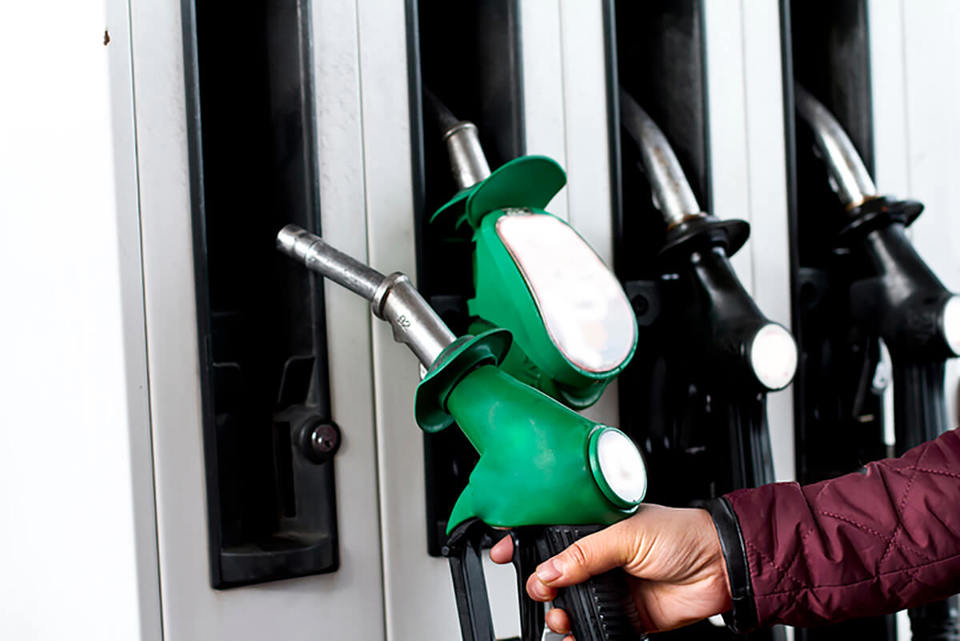Diesel power has dominated company car sales for many years, but the pendulum could be swinging back in favour of petrol-engined and hybrid models.
Company car drivers at contract hire and leasing company Ogilvie Fleet are turning away from pure diesel when selecting their new vehicles.
Among 11 sales and marketing employees, nine currently drive a diesel company car – two already drive petrol-electric hybrids – but that will drop to six when the new vehicles are delivered in the autumn.
While five drivers will remain loyal to diesel, three have opted to replace diesel models with petrol hybrids, one employee is replacing a petrol hybrid with a diesel hybrid, one is moving from a petrol hybrid to a diesel and another from diesel to petrol.
Nick Hardy, sales and marketing director at Ogilvie Fleet, believes the switch away from diesel being witnessed among its employees will be replicated across other fleets nationwide over the next 12 to 18 months.
It operates an expanding risk fleet of 11,500 vehicles and over the past four years diesel company cars have accounted for more than 90% of all models supplied.
This year it stands at 92.5% with petrol accounting for 4.5% of orders and hybrid 3%.
Average CO2 emissions across the fleet have dropped to 125g/km from 144g/km in 2010, with average fuel economy rising to 61.2mpg from 53.2 mpg four years ago.
In 2010, Ogilvie Fleet delivered just seven hybrid cars, but has supplied more than 70 so far this year.
Hardy added: “In recent months there is becoming a far greater awareness of petrol and diesel hybrid technology and its effectiveness, as well as the growing efficiency of petrol-engined models.
“We are starting to see the beginning of a shift away from pure diesel company cars because of the range of hybrid models now becoming available from mainstream manufacturers.
“The technology is understood and company car drivers are no longer cautious of a hybrid.
“Additionally, ever-tightening benefit-in-kind tax plays to the low CO2 emissions of hybrid models.”
However, Hardy believes the swing away from pure diesel will not be as dramatic as the near 50/50 split between diesel and petrol/hybrid witnessed at Ogilvie Fleet, although he predicts the start of a “significant shift”.
“In 2014, petrol-engined and hybrid model orders account for almost 8% of Ogilvie Fleet orders and I would expect that to perhaps double in the next 12 to 18 months,” he said.
Last year’s FN50 report showed diesel orders by the UK’s 50 largest contract hire and leasing companies were at a record high of 80%. However, Lex Autolease reported an increase in petrol orders – up from 9.6% in 2012 to 13%.
ALD Automotive and Hitachi Capital Vehicle Solutions also report an increased petrol uptake.
Staff at Ogilvie Fleet change their company cars on a three-year operating cycle with an open choice policy according to grade linked to Ogilvie True Cost.
That takes the established principle of wholelife costs as its base and then adds financial elements, such as employer Class 1A National Insurance Contributions, and subtracts a corporation tax saving before adding back into the calculation any applicable lease rental disallowance to provide a more accurate representation of the actual costs associated with vehicle operation.
Nick Faulkner, corporate area account manager, will in November swap an Audi A4 2.0 TDI Avant with CO2 emissions of 124g/km and official combined fuel economy of 60.1mpg for a Mitsubishi Outlander Plug-in Hybrid Electric Vehicle (PHEV) with CO2 of 44g/km and official fuel economy of 148mpg.
He calculated he will save around £220 a month in car and fuel tax as a result of choosing the Mitsubishi over the current Audi equivalent – almost £8,000 over the three-year cycle – having also considered a number of other models including those from Lexus and Mercedes-Benz.
Following conversations with clients, he believes the message that diesel is not always the right choice has yet to get through in some cases.
Faulkner said: “So many company drivers remain focused on choosing what they perceive to be the best car within their grade or allowance, but that is not always the astute financial choice.
“A slight compromise on badge, specification and engine can deliver huge financial savings both to the driver and the company.”
Across the 11 company cars, average CO2 emissions will drop from 111g/km to 103g/km, with average fuel economy increasing from 65.7mpg to 74mpg.


















ReliantRegal - 24/09/2014 09:53
I'll believe this when I see it. If drivers are switching to ultra-low emission plug-in hybrids purely for tax purposes, but their typical journeys don't bring out the best in the technology, the fuel bills will come back to bite them and their employers. The latest generation of 'efficient' downsized turbocharged petrol engines suffer from the same fuel economy deficit in relation to the official figures as 'efficient' diesels because, like the diesels, the engines are optimised for the official test cycle and not real-world driving. Plug-in cars are even further removed from this reality. Let's not forget that within the fleet lifecycle of many diesel cars being chosen now, drivers will experience the 'payback' from the lifting of the 3% supplement on BIK tax. I believe this the car and fuel tax argument is being highlighted because the figures stack up only on paper. The picture is even more complex than this story suggests. And how many fleets, with drivers having got used to their diesel company cars, would experience the inconvenience, downtime and expense of drivers misfuelling their new petrol cars?